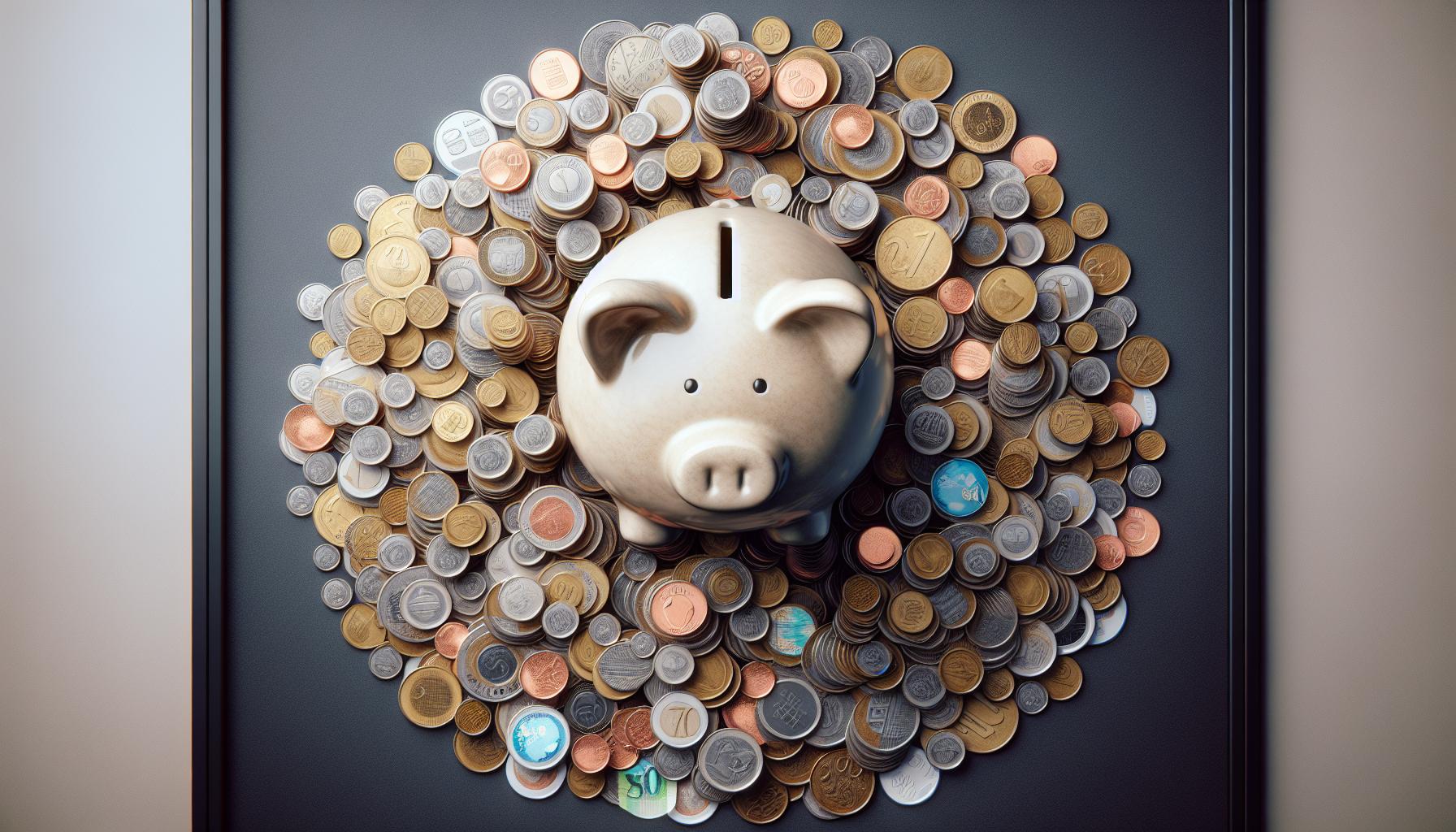Understanding the Basics of Budgeting
Financial stability begins with getting the basics right. Let’s investigate deeper into the concept of budgeting and why it’s a crucial part of smart money management.
What is Budgeting and Why is it Important?
Think of budgeting as your personal financial road map. This road map, or rather, financial plan, assigns your future income towards different routes – expenses, savings, and paying off any debt. You design this map considering your past spending lanes and any debts you’ve yet to settle. Budgeting is necessary for effectively managing your monthly income – a vital step towards achieving financial literacy and a secure future. No journey is a smooth drive without a well-planned map, right? So why should your financial journey be any different?
Different Types of Budgets: Which One is Right for You?
There’s no one-size-fits-all when it comes to budgeting. Various budgeting methods exist, much like distinct roads leading to different destinations. Your ideal budget type is as unique as your financial objectives.
Comprehending the significance of budgeting in financial planning is similar to understanding the importance of a good route map in a journey. The map (or budget in this case) is fundamental to the smooth operation of your financial journey, keeping it aligned with your critical strategic milestones—your financial goals.
The type of budget that works best for you depends on your income flow, expenditure, savings goals, and past spending habits. So, consider examining these factors while exploring various budget types. This step is akin to studying your journey’s terrain before embarking on it for a smoother ride.
Remember, choosing the right type of budget can better your financial control, giving you an eagle-eye view of your money trail. The notion of financial control might seem daunting initially, but much like being in the driver’s seat, the control it provides is empowering.
Setting Up Your First Budget

Setting up your first budget might seem intimidating, but when equipped with the right knowledge and tools, it’s more manageable than you might think. With an emphasis on simplicity, this guide will help you understand the key components of putting together a budget that’s suitable for your individual needs.
Assessing Your Financial Situation
Before diving into the budgeting process, it’s crucial to assess your financial world. Ask yourself, what’s your net income after taxes? Recognising your take-home pay allows you a clear image of what you have to allocate towards expenses, savings, and repayment of debt.
Yet, gauging your financial position isn’t just about income. It demands a thorough look at your assets, debts, and financial goals. You’re encouraged to create a balance sheet, a technique that puts all your financial details – assets and liabilities – on one table. A simple step but one achieving transparency and progress tracking over time.
Quiz: Are you boosting your job satisfaction with a lucrative side hustle? If not, what’s holding you back?
Creating a Budget Plan
With a clear grasp of your financial health, it’s time to curb the chaos with a detailed budget plan. Here’s where the magic happens – you’re channelling your hard-earned money into well-thought-out channels.
Each pound you earn has a predefined role now, a purpose. Monthly bills, an annual trip, a rainy-day fund, or a long-term savings goal like your first home or car – what your money does is entirely up to you.
Consider leveraging online management tools or free budgeting applications to help streamline this process. They are user-friendly, visual, and effective in helping you adhere to your budget plan.
But let’s not fill your plate with too much too soon. Start by budgeting for essentials, then for financial goals, and finally, your lifestyle choices. Get the hang of it and tweak your plan as you get savvier.
Remember: The discipline to stick to your budget marks the thin line between financial freedom and a debt trap. So, where will your journey take you?
Tracking and Managing Expenses

Making every penny count takes a meticulous approach to track and manage expenses. By combining tech solutions with prudent spending habits, you can lay the foundation for a financially stable future.
Tools and Resources for Budget Tracking
In this era of smartphones and digital solutions, you’ve got powerful tools right in your hands. Personal finance apps, like the hypothetical “GROW MORE” app, can be a boon for managing your money effectively. They not only track your spendings but also help in planning your budget. That’s the power of technology in personal finance management – removing the grunt work and offering you a clear picture of where your money goes every month. And if you’re a stickler for tradition, there’s nothing wrong with good old pen and paper, or an Excel spreadsheet.
Tips for Reducing Unnecessary Expenses
Budgeting isn’t just about sorting your income, it’s also a tool for identifying and slashing those non-essential spending. It’s about asking the tough questions – Do you need that box subscription? Is your cable package worth the cost? An effective way is to start by reviewing your expenses periodically. Discover any unnecessary spending, and don’t hesitate to cut it out. Remember, even eliminating a small $20 monthly expense can save you $240 per year. Now, that’s seriously worth considering.
Shaping personal finance habits and budgeting effectively isn’t a one-time gig. It’s an ongoing effort. A journey that not only protects your hard-earned money but also helps in creating wealth that lasts. So, keep tracking, keep managing and continue on this path of financial wisdom.
Savings and Emergency Funds

When discussing money management, there’s a duo that plays a vital role – savings and emergency funds. Understanding these financial tools and leveraging them effectively can be the first step towards laying a solid financial foundation.
The Importance of Saving Money
Savings aren’t just a smart move; they’re your financial bodyguards, ever-present to take the blows of unexpected hardships. Factor in this – do you want to merely exist from one paycheck to another or do you aspire for financial stability? If it’s the latter, then you’ll appreciate the power of savings. Managed expenses and money judiciously set aside can help you uphold your long-term goals, not buckling under the strain of financial uncertainties. Remember, an effective budget is your savings catalyst. Like a diligent postmaster, it ensures money is assigned the right destination.
How to Build an Emergency Fund
You’ve probably heard the phrase, “Save for a rainy day.” It doesn’t mean squandering away pennies in a piggy bank, waiting for the clouds to gather. It’s about being prepared for financial storms with a sturdy emergency fund. Sounds daunting, doesn’t it? Starting this project of sorts, squirrelling away money for unforeseen expenses? Your best ally in this venture is budgeting. It’s your financial architect, helping plan and build a strong, reliable fund that can weather any emergency. One crucial tip when starting this emergency fund – keep it separate from your general savings or funds to avoid being tempted to dip into it for non-emergencies.
Adjusting and Optimizing Your Budget

Reviewing and Adjusting Your Budget Regularly
To optimise your budget, it’s essential to play the role of an attentive caretaker, regularly reviewing and tweaking it. It’s akin to tending a garden; both demand care, attentiveness, and proactive adjustments. Your budget is not a set-it-and-forget-it tool; it should adapt as your financial circumstances and goals change. This consistent attention ensures that your budget remains a relevant and effective guide for your financial journey.
Overcoming Common Budgeting Challenges
You might encounter some bumps in your budgeting journey, but they’re not insurmountable. Overspending, inconsistent tracking, and underestimating expenses are common stumbling blocks that, like weeds in a garden, can hamper the growth of your financial health. Tackling these challenges head-on by setting realistic goals, utilising budgeting tools for tracking, and reviewing your budget regularly allows you to make necessary adjustments swiftly. With this adaptation, you’re one step closer to an optimised budget, setting a solid foundation for effective financial management.
Advanced Budgeting Strategies

These advanced strategies will help you fine-tune your financial activities. Let’s dive deeper into mechanisms that could enhance your fiscal management.
Planning for Big Purchases and Investments
The whole idea behind advanced budgeting includes making room for substantial expenses or investments. It’s same as climbing a mountain. You’re not going to make it to the top in one straight shot. Instead, you’ll have to rest and adjust your route as you journey upwards. Similarly, big purchases need to be broken down into smaller, achievable targets, saved incrementally. Regular adjustments in other expenditure sectors might be necessary, keeping in mind the overall financial objectives.
Automating Your Finances for Efficiency
Ever imagined your finances operating on an ‘autopilot’ mode? That’s exactly what finance automation does. In a world of digital sophistication, where your morning coffee is brewed automatically, why should your finances be left behind? Scheduled bill payments, recurring investments into your savings accounts, you name it, they can all be automated. Not only does this eliminate the possibility of foregone payments, but it also ensures that your capital is growing with minimal effort. It’s like your very own digital accountant working round the clock, making your life easier.
Building a Healthy Financial Lifestyle
So, you’ve explored advanced budgeting strategies, understood the significance of planning for big buys and investments, and discovered the efficiency of automating your finances. It’s clear that managing your money effectively isn’t just about cutting costs; it’s about making smart decisions that align with your financial goals. Remember, breaking down larger expenses into achievable targets and making regular tweaks to your financial plan can make a world of difference. Similarly, setting up automatic payments and regular savings contributions can help you stay on track with minimal effort. It’s all about building a healthy financial lifestyle, and with these strategies, you’re well on your way. Keep going, stay committed, and watch your financial health flourish.

